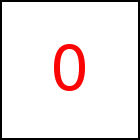paint Library Method
Short Description: Paint HTML element on texture canvas
Signature: t.paint ([canvas],[ignorehide])
Group: Texture
Class: transition Class
Paints the HTML element associated with the transition to
the specified Texture Canvas. canvas may be 1 or 2;
default is the one selected with texCan. ignorehide will ignore a CSS hidden specification
of the element (but not of nested elements). Default of ignorehide
is true.
If you use actor or to create
the transition, paint will be done
automatically. Otherwise you need to call paint or
paintElement. Normally however, paint is required
just once per element (and can be shared among various transitions for
the same element). Refer to
Texture Canvas for
details. For blend and similar
operations it sometimes is required
to paint the element to the second
or Alternate Canvas.
Examples
taccgl.a("testimg").paint().start(); | RUN |
taccgl.a("testimg2").paint().start(); | RUN |
taccgl.a("testimg2").paint(2).blend(0,1).start(); | RUN |
taccgl.a("testimg").paint(); taccgl.a("testimg2").paint(2).blendA(1,0,0,1).start(); | RUN |
Note that the element is painted to the mapped texture coordinates. Per default
these are the ordinary coordinates of the HTML element. You can, however, use map,
mapScale, and companions to change the texture coordinates.
A first typical use for this mechanism are very long pages. Since the texture canvase's size
is limited the normal paint mechanism stops working for elements at the end of the page.
The following example works, regardless where the animated paragraph appear on the page,
even if the page is very long.
Examples
taccgl.a("ex").map(0,0).paint().hide().visFinal().rotateMiddle(0,0,1).start(); | RUN |
Care needs to be taken, not to map multiple elements to the
same coordinates, since overlapping elements on the texture
canvas can has undesirable effects, see .
WebGL™ is a trademark of the Khronos Group Inc.
| 






